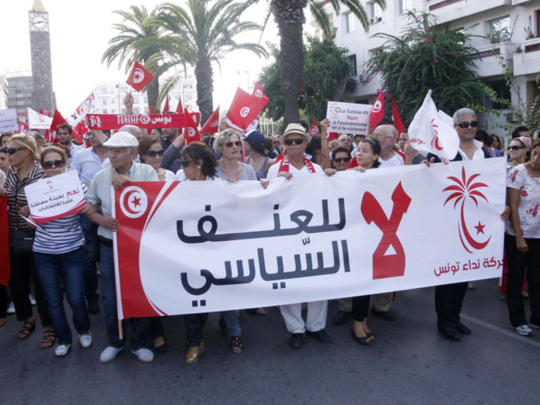
Tunis: Tunisia’s progress on human rights has reached a crossroads, with the Islamist-led government rolling back gains made after last year’s revolution, Amnesty International said in a report released on Tuesday.
“Progress on human rights in Tunisia that followed the ousting of Zine Al Abidine Bin Ali is being rolled back by the current Tunisian government, casting doubt on their commitment to reforms,” the rights group said.
“Today, Tunisia is at a crossroads... Urgent steps are needed to realise the rights and freedoms for which Tunisians fought so tenaciously and bravely in late 2010 and early 2011,” it added, in a report published on the anniversary of the country’s first free elections.
In its 37-page report, entitled One step forward, two steps backwards? the rights watchdog highlighted concerns about individual liberties.
“Recent months have seen increased restrictions on freedom of expression, with journalists, artists, critics of the government, writers and bloggers targeted under the guise of maintaining public order and public morals,” it said.
“The Tunisian authorities have also appeared unable or unwilling to protect individuals from attacks by groups believed to be affiliated with Salafist groups.”
The report also criticised the “unnecessary and excessive use of force” used to disperse protesters who continue to take to the streets across Tunisia to express their discontent over the slow pace of reform.
Tunisia is celebrating one year since the election of the National Constituent Assembly, in an atmosphere marked by political tensions, sporadic violence and a stalled new constitution.
Last year’s ballot swept the moderate Islamist party Ennahda to power, in a coalition government that also includes two secular centre-left parties, the Congress for the Republic and Ettakatol.
Since the historic elections, progress on drafting a new constitution has been delayed by disagreement over the nature of Tunisia’s future political system, while clashes between police and protesters are common.












